The Asian Cultural Council is thrilled to welcome our newest cohort of eight New York Fellows visual artists Haruchi OSAKI and YAO Qingmei, musicians Shih-Yang LEE and Marin NARUSE, theatrical researchers CHEN Yen-Pin (Fangas Nayaw) and Yuta HAGIWARA, curator Rocky CAJIGAN, and filmmaker MA Chi Hang (Machi).
Awarded in 2022, these eight individuals will explore New York City and the greater US to uncover the artistic and cultural nuances that make up their new local communities. Through ACC’s program services, each grantee will have the opportunity to participate in workshops, meet with arts leaders, examine the impact of cultural institutions, and connect with the greater ACC community during their stay. The ACCNY team is eager to assist this cohort in forging their exciting journey through the rest of 2023.
Read more about ACC’s Summer 2023 New York Fellowship grantees below.
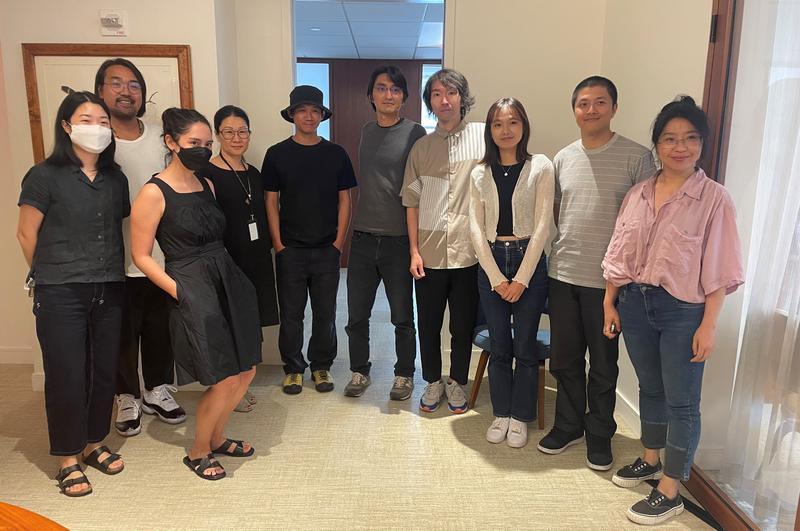
Left to right: Betsy Ko, Fangas Nayaw, Devin Denny, Judy Kim, Machi, Yuta Hagiwara, Haruchi Osaki, Marin Naruse, Shih-Yang Lee, Yao Qingmei
Rocky CAJIGAN | Curation | Philippines → United States
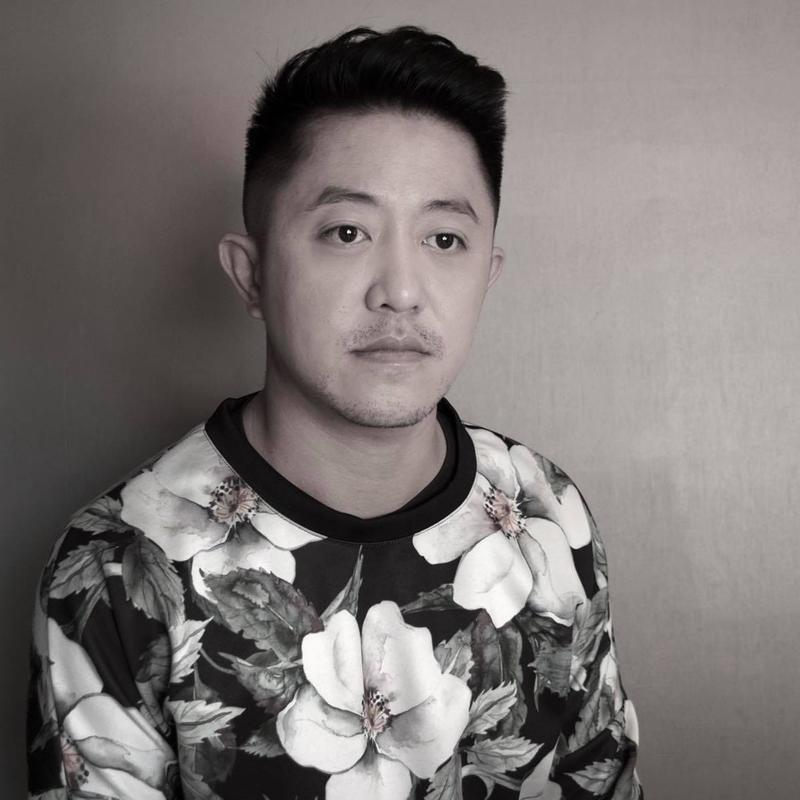 Grant: To explore curatorial practices and programming activities in museology in New York City.
Grant: To explore curatorial practices and programming activities in museology in New York City.
Cajigan's practice engages critically with identity and history, posing questions about what it means to be indigenous in the postcolony. His planned ACC Fellowship, which draws on recent residency projects and a short visit to New York in 2019, proposes to study the presentation and compartmentalization of material culture in the city's anthropological and ethnographic museums. By studying the ways that institutional contexts transform art objects, Cajigan will continue his exploration of museology and ethnography as possible pathways toward decolonization.
Rocky Cajigan is a visual artist and writer. He is a member of the Ubbog Cordillera Writers and the Baguio Writers Group. As an artist working in painting, installation, and assemblage, he explores material culture, indigeneity, and museology. He was a recipient of the Ateneo Art Awards Fernando Zobel Prize for Visual Art in 2016 and the Thirteen Artists Awards in 2021. His last solo exhibition Collective Memories was presented at The Drawing Room in Makati, Philippines in 2018.
Instagram | Facebook
CHEN Yen-Pin (Fangas Nayaw) | Theater | Taiwan → United States
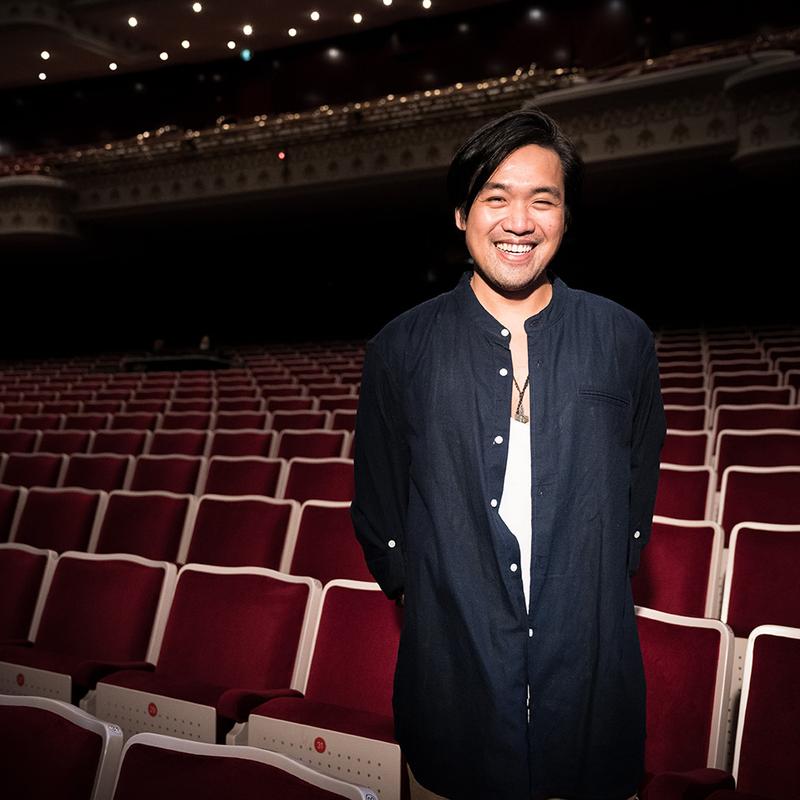 Grant: To observe artistic practices across disciplines and consider the two-way exchange between Indigenous culture and contemporary art.
Grant: To observe artistic practices across disciplines and consider the two-way exchange between Indigenous culture and contemporary art.
During his New York Fellowship, Fangas Nayaw will observe the expression of creation in different fields of art, communicate with creators from different life backgrounds and domains of art, and explore the creative inspiration of his future cross-medium and transdisciplinary creations. He will connect with artists, creators, institutions, art galleries, and other art spaces in New York, sharing about identity, nation, country, and artistic creation to inspire his journey. Considering his roots in Taiwan, Fangas Nayaw will examine the demographic diversity of race, identity, occupation, nationality, and religious beliefs in New York to understand a local lifestyle and way of being.
Fangas Nayaw is Amis, from the tribe of Luye Rekat in Taitung. He holds a master's degree from the Theatre Art Creation Institute at National Taipei University and is currently working toward his Ph.D. Fangas Nayaw is a transdisciplinary creator—an artist, director, choreographer, and performer. His work plays with audience participation and the possibilities of new technology in the performing arts while also reflecting on Amis culture and identity.
Facebook
Yuta HAGIWARA | Theater | Japan → United States
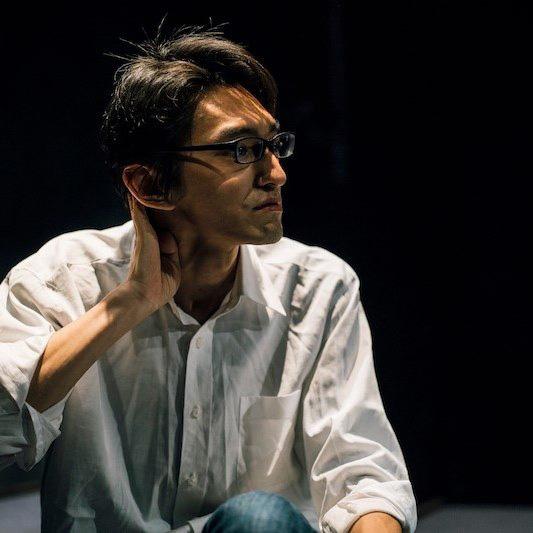 Grant: To research "Democracy's Body"— the trend of alternative theater in New York City after World War II.
Grant: To research "Democracy's Body"— the trend of alternative theater in New York City after World War II.
Hagiwara creates works that explore the relationship between "public" and "private." He plans to examine the following questions in the city: What kind of reality do artists and audiences face in New York City? What does democracy mean to people living in New York? From these questions, his findings will inform his understanding of the relationship between "performing arts" and "democracy."
Yuta Hagiwara graduated from Waseda University, School of Humanities and Social Sciences in 2006 and founded “Kamome Machine,” his own theater company in 2007. From 2014 to 2016, Hagiwara joined the Folk Performance Research Group, and conducted research on folk performances in Japan and Bali. In 2018, he participated in the Theatertreffen International Forum, a workshop conducted as part of the theater festival’s program. Outside creating theater, he also works as a journalist writing for magazines and online media. He has directed plays such as “Waiting for Godot in Fukushima,” a piece staged in Fukushima immediately following the accident at the nuclear power plant, “Oregayo”; the performance uses the Japanese constitution as its text, and was invited to Temps D'Images Festival Cluj, an international festival in Romania, as well as Samuel Becket’s “HAPPY DAYS”. In 2020, Hagiwara began working on a series of performances conducted over the phone, taking the form of one-on-one conversations between performer and audience. The series thus far has produced two staged works, “Moshi-Moshi, Not I” and “Moshi-Moshi, Madame Simone.”
Website | Instagram | Facebook
Shih-Yang LEE | Music | Taiwan → United States
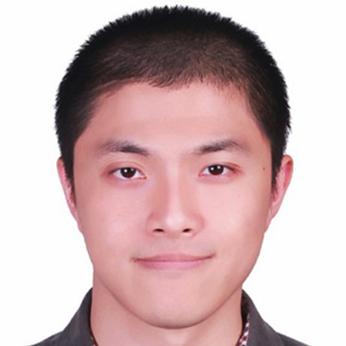 Grant: To observe and participate in the experimental and improvised music scene in New York City.
Grant: To observe and participate in the experimental and improvised music scene in New York City.
Lee plans to collaborate with local artists in New York City to observe and participate in the production of experimental and improvisational music. He will work with New York-based musicians of all backgrounds and focus on the multicultural influences of traditional Asian instruments on the musical and cultural landscape of the city. Lee is looking forward to connecting with musicians and scholars at experimental venues like The Stone at the New School, the 27th Annual Free Jazz Vision Festival, and the Art Omi Arts Center. As an artist who pushes boundaries at home, Lee’s ACC Fellowship will give him the opportunity to be challenged and immersed in a new musical environment through diverse collaborations and improvised projects with local artists.
Shih-Yang Lee is a pianist and suona player, a producer, and a curator who works primarily in improvised music. As a performer, he has toured widely in Europe and Asia. He has collaborated with dance productions to win prestigious Taiwanese awards, such as the Taishin Art Award, Golden Melody Award, and Golden Indie Award. As a curator, Lee is known as a leading organizer for the burgeoning improvisation scene in Taiwan. He introduces international performers to local audiences, advocates for the inclusion of improvisation in more mainstream festivals and acts as a skilled network-builder and supporter of other artists.
Facebook
MA Chi Hang (Machi) | Film/Video | Hong Kong → United States
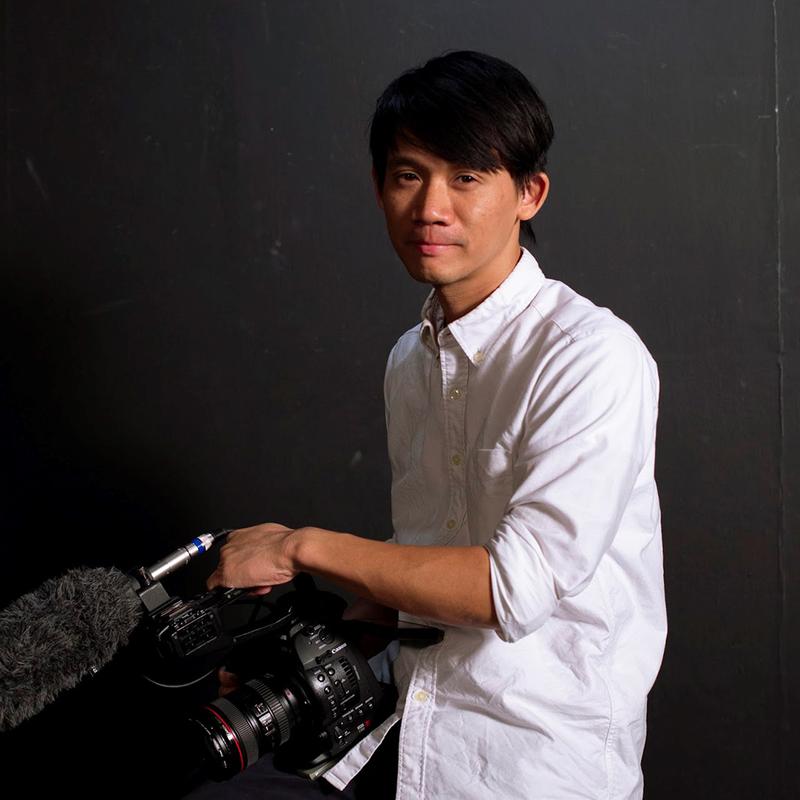 Grant: To observe the central concerns of visual anthropology in the U.S., and to research the ethnomusicology of minority and immigrant communities.
Grant: To observe the central concerns of visual anthropology in the U.S., and to research the ethnomusicology of minority and immigrant communities.
Machi’s research will focus on interviewing minority and immigrant communities to collect fading ballads across various languages. The vision set out in his proposal is refreshing, urgent, and comes from a place of deep expertise with his film “Ballad on the Shore” considered a primary source in the field of anthropology in Hong Kong.
Machi is a filmmaker, artist, and arts educator. His art practice focuses on documentary, non-fiction film and ethnographic film, highlighting cultural heritage and humanity. As an experienced arts education worker, he is the Program Leader of Diploma in Creative Arts (DCA) at HKICC Lee Shau Kee School of Creativity. He received a BA in Fine Arts and an MA in Philosophy from The Chinese University of Hong Kong. Machi founded the art group MR 221 with fellows Lam Tung Pang, Tozer Pak, Lee Kit and Jeff Leung, opening a dialogue on local art ecology and cultural policy, later enlightening the Fotanian Art Movement. He initiated the Y.H.A 30+, Young Hong-Kong Artist Dialogue (2007-2010), a research-based video project interviewing over 20 artists as pioneering video documentation of the Hong Kong contemporary art scene. His short film, “Women Security Guard” (2015) received the Silver Award in IFVA (Hong Kong Independent Short Film and Video Awards) and had a presence in the Clermont-Ferrand Short Film Festival in France. His debut feature-length documentary film, “Ballad on the Shore” (2017) is widely reputed for its poetic handling of the intangible cultural heritage of fishermen ballads. This ethnographic film devised a dialogue on the unconquerable vanishes of old cultures and was screened over 100 times at international film festivals, cinemas, and communities.
Marin NARUSE | Music | Japan → United States
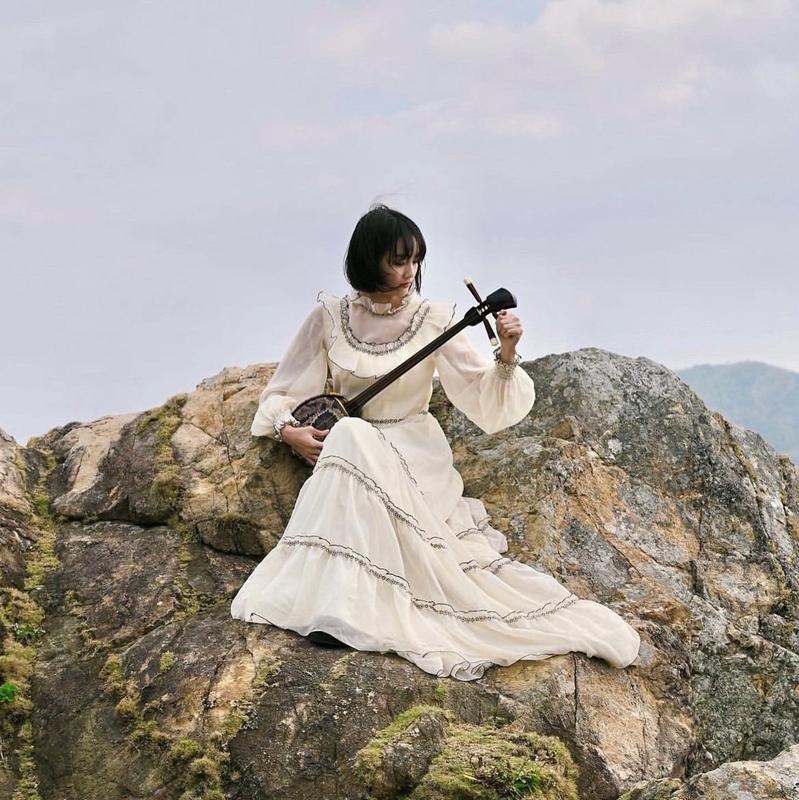 Grant: To investigate the preservation of ethnic music in New York City and study the applicability of U.S. ethnic and folk music stewardship practices to shimauta music in Japan.
Grant: To investigate the preservation of ethnic music in New York City and study the applicability of U.S. ethnic and folk music stewardship practices to shimauta music in Japan.
Naruse aims to promote shimauta to local New York City communities through performance and academic workshops. She will study examples of music by oppressed ethnic minorities around the world that have succeeded in surviving or developing into new music genres to learn about processes and strategies for the cultural preservation of music. To explore ethnic music in NYC, she will join events hosted by The Center for Traditional Music and Dance (CTMD) which assists immigrant communities in passing traditions to future generations. Naruse hopes to challenge and expand the possibilities of shimauta and build connections with local artists. She will also join The New York Amami Group, a social organization for Amami people in NYC, to work on the revival of shimauta in the city.
Marin Naruse is a “shimauta” singer of the traditional music of Japan’s Amami Islands. She has won multiple awards and actively collaborates with various artists, such as jazz pianists, orchestras, and rakugo players, to explore the expanded possibilities of shimauta. Naruse was named an official Minyo Ambassador by the Japan Folksong and Dance Foundation; she regularly delivers seminars and lectures about shimauta music. By gaining insight into US ethnic music preservation practices, Naruse hopes to conduct the first academic study of shimauta music to preserve its unique traditions. Her work seeks to build awareness of the Amami people and amplify their cultural contributions to audiences in Japan, the US, and across the globe.
Website | Instagram | Facebook | Twitter
Haruchi OSAKI | Visual Art | Japan → United States
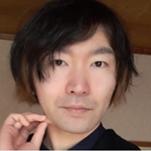 Grant: To conduct interdisciplinary research on disability culture and contemporary inclusive cultural forms.
Grant: To conduct interdisciplinary research on disability culture and contemporary inclusive cultural forms.
Osaki plans to explore new communication models, physical expression, and experiential/participatory forms in New York City during the post-Covid era. Osaki creates works engaging with mental and developmental rehabilitation and psychopathology. Through this Fellowship, he hopes to research communications in various cultural forms and rethink the audiences' participation in a more diverse environment. He also plans to collect feedback on the cultural and social environment in Japan.
Haruchi Osaki graduated from the Department of Advanced Art Expression, Faculty of Fine Arts, Tokyo University of the Arts in 2007. He completed his master’s degree at the Department of Advanced Art Expression, Graduate School of Fine Arts, Tokyo University of the Arts in 2009. His major exhibits include "CONNECT ?" (National Museum of Modern Art, Kyoto, 2020), "Sustainable Sculpture" (Komagome SOKO, 2020), "HYPER-CONCRETENESS-Fiction and Life" (Kyojima Nagaya, 2018), "Reborn-Art Festival" (Miyagi, 2017), and "New Rube Goldberg Machine" (KAYOKO YUKI, Komagome SOKO, 2016). In 2015, Osaki started the "Barrier House" project in collaboration with architects at Asahi Art Square and held an exhibition of renovated houses in Kitasenju Tako Terrace in 2017 and Kyojima Nagaya in 2018. The project was introduced in the book "Architecture Tokyo" (Misuzu Shobo) by TaroIgarashi. Osaki’s awards include the Aichi Architects Association "Architecture Contest" Nobuaki Furuya Award (2011), "Glow Up!! Artist Project 2014" (Asahi Art Square, 2014), and "ART AWARD TOKYO 2007" Special Award (2007).
Website | Instagram | Twitter
YAO Qingmei | Visual Art | China → United States
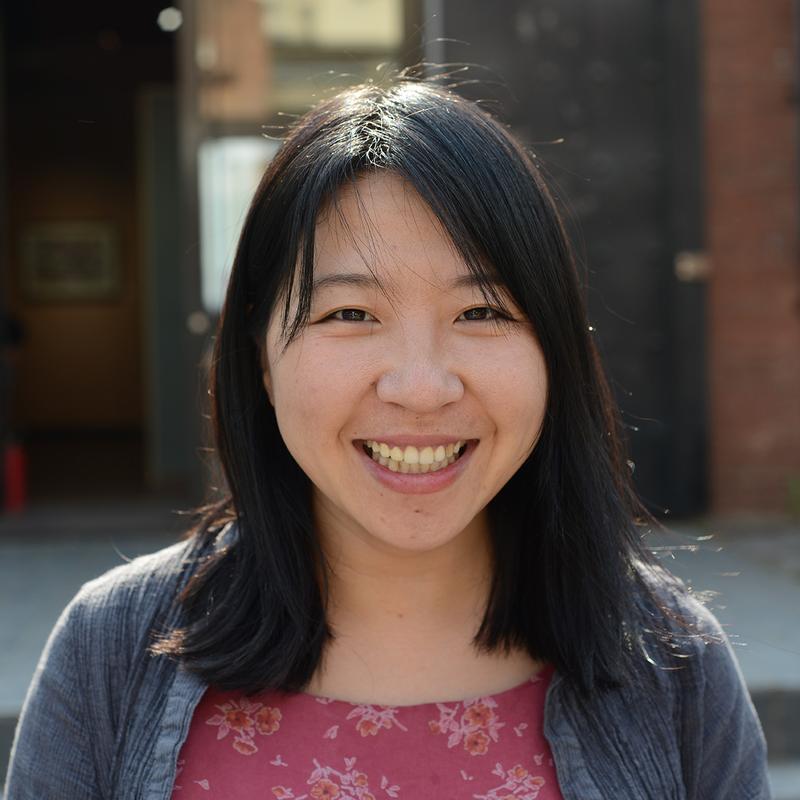 Grant: To research the history, development, and archival practice of performance art and observe trends in interdisciplinary performance in New York.
Grant: To research the history, development, and archival practice of performance art and observe trends in interdisciplinary performance in New York.
Yao proposes to research movements such as Black Mountain College and Judson Dance Theatre and interact with young performance artists during her grant period. She hopes to explore how performance artists can move beyond a habitual mode of thinking and implementation—from the routine space of the stage, theater, and white cube into other places where public space is infiltrated.
Yao Qingmei’s practice traverses the boundary between performance and its site, frequently enacting intervention in public space to perturb the parameters of its reality and surroundings. Her art is deep-rooted in a critical reflection into the formulation of political and social questions, exploring how symbolic gestures gain or lose power through forms of appropriation and displacement. Here, humor plays an important role in her work, using the poetics of comedy to expose the absurdity of a particular issue. She achieved DNSEP with honors from Villa Arson, Nice, France in 2013, and was awarded the Prix Spécial du Jury at the 59th Salon de Montrouge in 2014. She was also named “Young Chinese Artist of the Year” in 2017 in China and won the 68th Prix Jeune Création of Paris in 2018. Her major solo exhibitions include: La commerce du parole, Atelier Blanc, Villefranchede Ruge, FR (2018); The Ecdysiast, Magician Space, Beijing, CN (2017); Professor Yao, OCAT Xi’an, Xi’an, CN (2016); Recrute Mendicant/ SDF pour une foired’art contemporain, Marseilles, FR (2015); One Hour Occupy Parking Lot, Paradise, Nante, FR (2015); Professor Yao, Magician Space, Beijing, CN(2015); Vernissage Nouvelles Expos, Palais de Tokyo, Paris, FR (2014).
Website | Instagram | Facebook | Twitter
 ACC New York
ACC New York